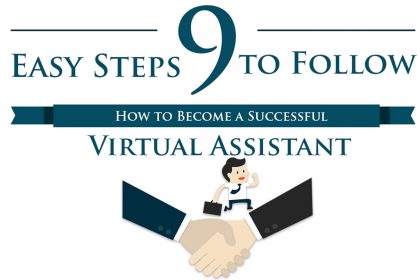Thinking about becoming a VA? How much will you earn, and what hours will you work?
Toying with the idea of becoming a VA? Find out how much you can earn, and what hours you’ll need to work.
For many mothers, working from home appears to be the answer to the struggles they face juggling their need or desire to earn money, and the realities of looking after young children.
And for some of these women, becoming a self-employed virtual assistant (VA) means they can use skills they’ve honed over many years in the workplace to carve a home-based career on their terms.
It’s also a career in which you can influence the amount of money you earn – certainly to a greater extent than employment, when you are reliant on pay rises from an employer.
How much can you earn as a VA?
The amount of money you can earn as a VA depends on a number of factors, including:
- Your skills, experience and qualifications.
- The hours you are prepared to work.
- How confident you are at selling.
- The type of industry you choose to niche in.
According to a survey by the Society for Virtual Assistants, the average rate charged by VAs is £25* per hour. But clients will pay more for specialist skill sets, or for working with a team of VAs.
Specialist skills like social media, web design or telesales will earn more than standard admin, because they help clients make money.
Clients are also willing to pay more for the facility of having a team of VAs working for them – it helps with workflow and means they are never without cover due to illness or holidays.
Many women have successfully built VA businesses over a several years, and enjoy the flexibility and variety that being a VA brings to their work and personal life.
What hours do VAs work?
One aspect of working as a VA that is particularly attractive to mothers is the flexibility of the hours. As you’re self-employed, you can choose when you’re available, and when you’re not. Of course this needs to be balanced with the requirements of your clients, and the amount of money you need to earn.
According to the Society for Virtual Assistants’ survey, nearly 70% of VAs work part-time, and there are many different kinds of VA business models.
Some VAs just want to earn extra cash on evenings and weekends. Others will specialise in supporting other VAs. And some will be fully-fledged business owners in their own right, often with a team behind them.
Here’s what the survey revealed about the earnings of VAs in the UK based on the number of hours they work:
| Weekly hours | Average annual turnover | Average hourly rate |
| 0-10 | £10,556 | £23.75 |
| 11-20 | £14,803 | £24.56 |
| 21-30 | £25,417 | £26.03 |
| 31-40 | £33,851 | £27.13 |
| 40+ | £67,179 | £27.74 |
However, it’s worth noting that not all your time working as a VA will billable to clients. You also need to set aside time for your own business admin, such as bookkeeping and marketing.
In the early days, you should expect to spend at least 50% of your time on these tasks. It’s also important to remember that these figures are turnover, not profit. You need to deduct the costs of running your business, such as phones, websites, marketing, tax etc, before calculating your profit.
The survey revealed that a full time VA has an average turnover of £67k, but the average reported earnings for a UK VA is between £11k-£20k. On the plus side, don’t forget that a 9-5 job will also have costs, such as commuting, work wardrobe, lunches etc, and you’ll be saving many of these expenses when you work for yourself from home.
How do VAs find clients?
One tho the biggest challenges VAs face – as revealed by the survey – is getting clients. If a VA has moved from a traditional PA role, it’s no surprise – it’s not a skill that would have been part of their former job description, so won’t have been one they have learned or honed.
But finding clients as a VA is easier than many VAs think when they first enter the industry. Marketing doesn’t have to be ‘sales-y’ – you can easily market yourself using authentic and helpful ways of showing clients how you can be an asset to their business.
As with any business, it’s important to find a niche you can excel in, identify which clients you’d like to work with, and the specific problems you solve for them, and plan a marketing strategy to communicate your services.
Sometimes, marketing may be as simple as reminding businesses you are there, with a link to an article, or a funny postcard. Other times, clients may come straight to your website and need work done ASAP.
Lots of VAs find their first client among family or friends or former work colleagues. So it’s worth getting your LinkedIn profile up to date, seeing what your contacts are up to, and reaching out to anyone who you think may benefit from your services.
What challenges do most VAs face?
Funnily enough, one of the most common challenges VAs need to deal with isn’t work-based at all! Instead it’s convincing people that just because you work from home it doesn’t mean they can drop by for a cuppa when they feel like it.
You’ll become well acquainted with the postie too, because you’ll be signing for everyone’s deliveries during the day! Cabin fever is also a real danger – I always advise people try and leave their desks for a walk at least once a day.
But these minor issues aside, being a virtual assistant can be a rewarding career bright prospects – 77% of the VAs who responded to the Society of Virtual Assistants survey said their business was growing in 2019.
Want to become a VA?
If you’d like to learn more about becoming a VA, you’ll find these articles helpful:
- How to work as a virtual assistant from home
- Free webinar: how to launch yourself as a virtual assistant
- How to set yourself up as a VA
- 40 tasks a virtual assistant can do
Caroline Wylie has been a VA since 2004. Virtual assistance in the UK was a fledgling industry, so she worked with a collection of VAs to educate the business community about virtual working. This rapidly grew into the Society of Virtual Assistants, which conducts industry research and promotes best practice in the industry.
Photo by Mateus Campos Felipe










